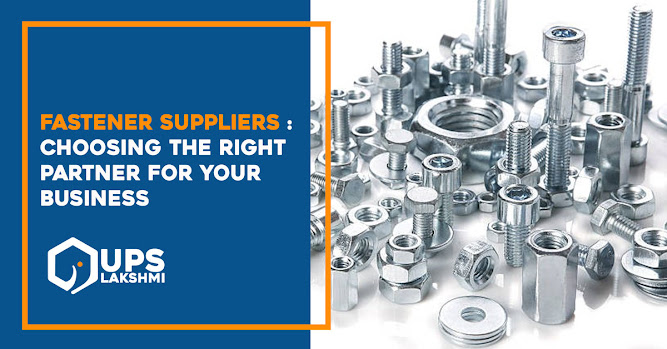How to Identify and Prevent Common Fastener Failures

Fasteners play a crucial role in holding
together various components and structures across industries. From everyday
objects to heavy machinery, fasteners ensure stability and safety. However,
fastener failures can lead to catastrophic consequences, resulting in equipment
breakdowns, safety hazards, and costly repairs. In this blog, we will explore
the common causes of fastener failures and discuss preventive measures to ensure
the longevity and reliability of fastened assemblies.
1. Understanding Common Fastener Failures
1.1. Overloading: Applying excessive loads on fasteners can lead to stress and deformation, ultimately resulting in failure. It is essential to adhere to the recommended load capacities specified by the manufacturer.
1.2. Corrosion: Exposure to moisture, chemicals, and harsh environments can cause corrosion in fasteners, weakening their structural integrity over time. Using corrosion-resistant materials or coatings is crucial in preventing this issue.
1.3. Fatigue: Repeated cycles of stress can cause fasteners to weaken and eventually fail, even when loads are within acceptable limits. Proper design considerations, such as stress relief and avoiding sharp corners, can reduce fatigue failure risks.
1.4. Improper Installation: Incorrect
tightening torque or using the wrong tools during installation can lead to
uneven stress distribution and premature fastener failure. Following proper
installation procedures and using calibrated torque tools are essential
preventive measures.
2. Preventive Measures for Fastener Failures
2.1. Selecting the Right Fastener
Choosing the appropriate fastener for the specific application is crucial. Factors such as material compatibility, load requirements, and environmental conditions should be considered. Consulting with a fastener expert or manufacturer can ensure the right choice.
2.2. Regular Maintenance
Periodic inspection and maintenance of fastened assemblies can detect early signs of wear, corrosion, or fatigue. Timely replacements or repairs can prevent potential failures and extend the lifespan of the fasteners.
2.3. Proper Installation
Adhering to the recommended installation procedures provided by the fastener manufacturer is vital. This includes using the correct tools, tightening torque, and lubrication to ensure consistent and reliable performance.
2.4. Corrosion Protection
Utilizing fasteners made from corrosion-resistant materials, such as stainless steel or coated with protective layers, can significantly extend their service life, especially in harsh environments.
2.5. Load Distribution
Designing assemblies with a focus on even load distribution can help prevent localized stress concentrations that may lead to fastener failure. Consider using washers or gaskets when necessary.
2.6. Torque Control
Controlling the tightening torque is critical to achieving the optimal clamping force. Under or over-tightening can both lead to fastener failure. Employing torque wrenches or tension-indicating devices ensures precise torque application.
2.7. Regular Testing
In critical applications, routine testing of fasteners and assemblies can provide valuable data on their performance. Non-destructive testing methods, such as ultrasonic or magnetic particle inspections, can reveal potential defects or weaknesses.
2.8. Training and Education
Ensuring that personnel involved in fastener selection and installation receive proper training can significantly reduce the likelihood of human error leading to failures.
Fastener failures can have severe consequences across various industries, affecting safety, productivity, and budgets. Identifying common causes of failure, such as overloading, corrosion, and improper installation, allows us to implement effective preventive measures. By selecting the right fasteners, conducting regular maintenance, following proper installation procedures, and addressing potential risks, we can enhance the reliability and longevity of fastened assemblies.
Universal Precision Screws (UPS) is a leading fastener manufacturer with a proven track record of excellence. Their commitment to producing high-quality fasteners that meet stringent industry standards has earned them a reputation for reliability and customer satisfaction. With a diverse range of products designed for various applications, UPS continues to be a trusted partner in ensuring the stability and safety of assemblies across industries worldwide. To know more, visit- https://www.upsind.com/



Comments
Post a Comment